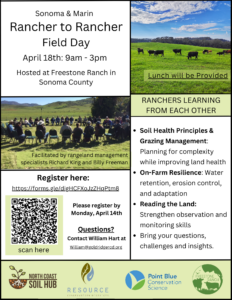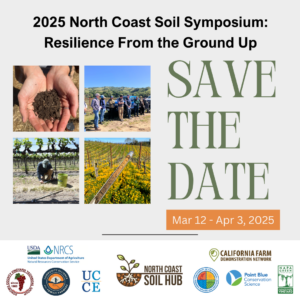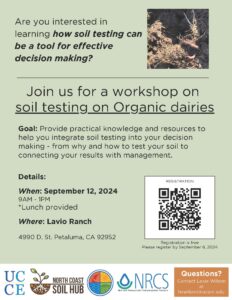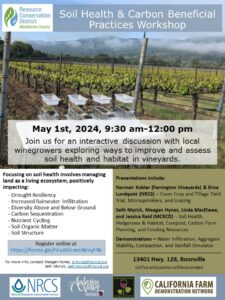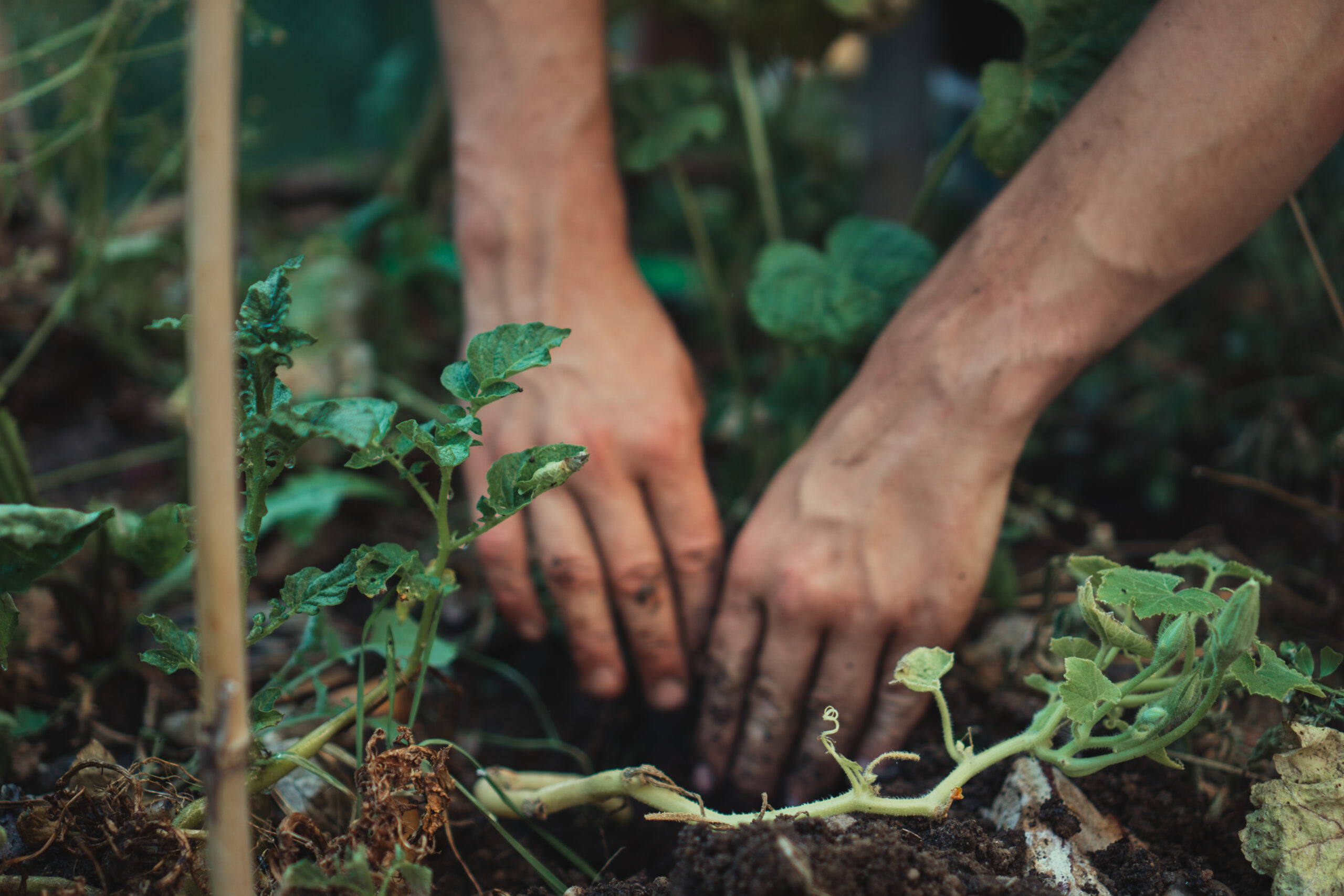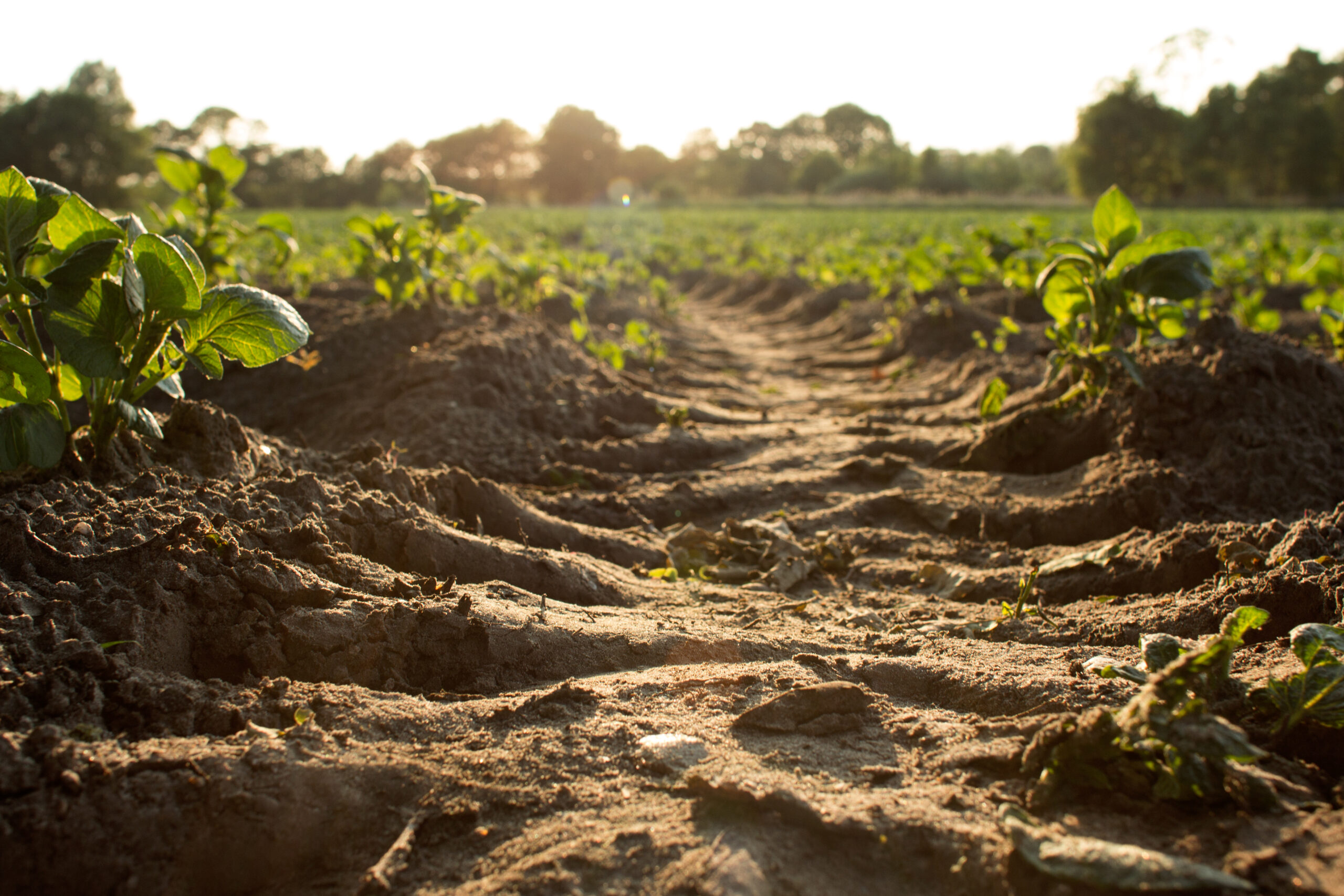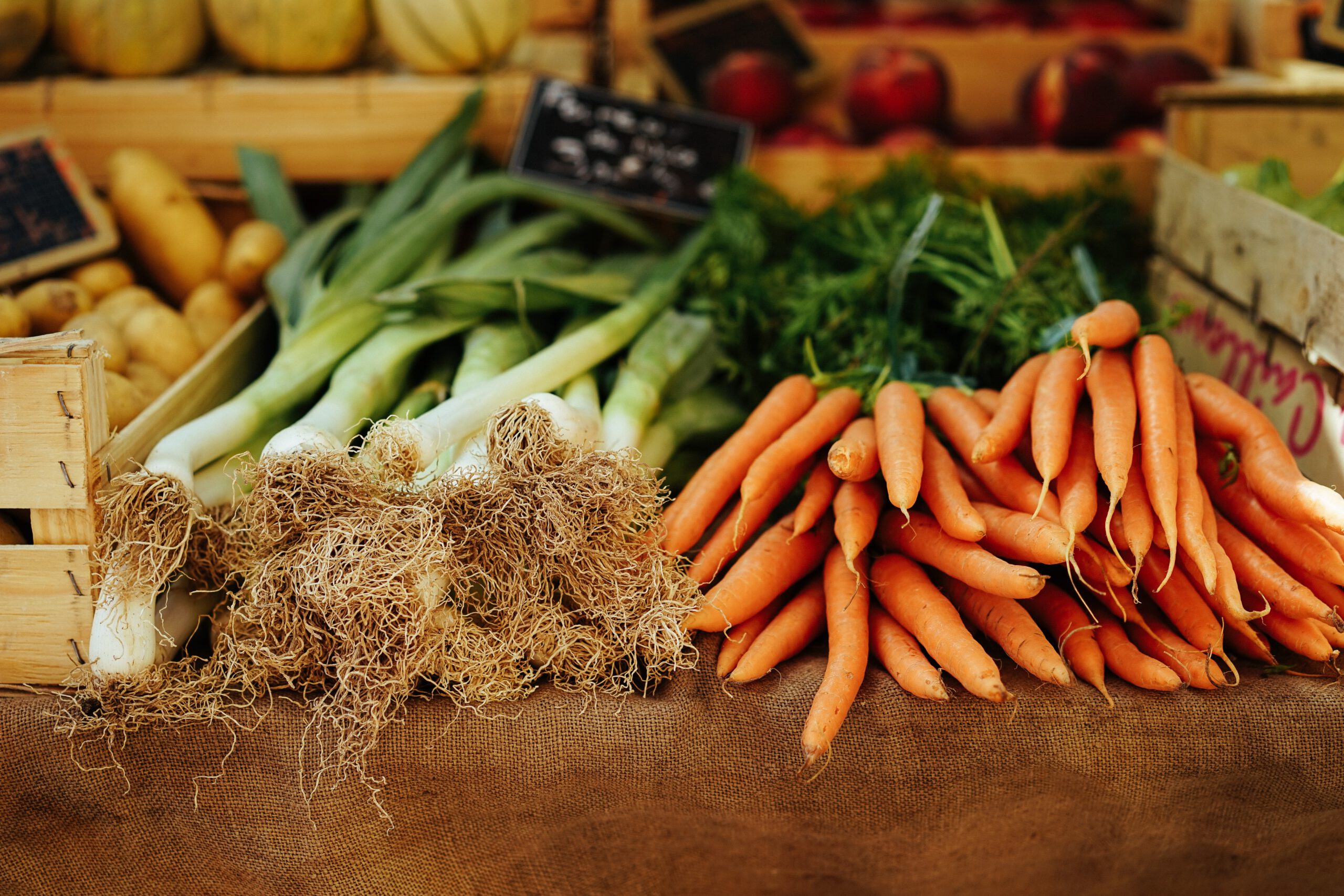In 2021, the County of Sonoma used a portion of the PG&E wildfire settlement to establish a $10 million Climate Resiliency Fund with the goal of funding short-term projects that reduce greenhouse gas emissions, increase carbon sequestration, and otherwise help local communities mitigate and adapt to climate change impacts.
In 2022, the Carbon Sequestration Pilot Project grew out of this fund, coordinated by the Region Climate Protection Authority. The goal of the Pilot Project is to support compost application on agricultural lands, bring greater awareness and education about the value of applying compost, and sequester as much carbon in agricultural soils and vegetation as possible.
The application of compost is beneficial for the soil, not only for increasing carbon sequestration, but also for improving forage production, increasing the soil’s ability to absorb and store water, and improving soil structure to reduce erosion. Compost application on agricultural lands can also help increase yields and improve forage quality by improving nutrient availability and the overall productivity of the system.
Gold Ridge and Sonoma RCDs led the implementation of Pilot Program, soliciting applications for funding and selecting recipients using an equity-based scoring system. Demand for compost application support was great – the RCDs received 37 applications from diverse agricultural producers across the county, including vineyards, orchards, cropland, rangeland, dairy, forest, and mixed use operations (vegetables, orchard, flowers, and berries). In order to disburse funds, the RCDs developed prioritization criteria to screen and rank each application based on factors such as:
- Whether the property has a Carbon Farm Plan
- Whether the applicant is an underserved / socially disadvantaged farmer
- The farm’s support for community education, habitat or water conservation efforts
- Farm size
- Whether the producer has received RCD support in the past
- The return on investment (i.e. carbon sequestration benefit compared to the cost of implementation)
After screening and ranking projects, Gold Ridge RCD selected 5 recipients and is currently working with producers to get compost on the ground. Two projects have already been implemented, with three more scheduled for this fall. In total, these projects will spread compost over a combined total of 50 acres with a carbon benefit of 324 metric tons of CO2 equivalent (MT CO2e, an estimate of carbon sequestration). This carbon sequestration is equivalent to driving 831,077 miles in an average gasoline-powered car or planting 5,361 tree seedlings that have grown for ten years.
Sonoma RCD is working with a total of 11 producers. Compost application is underway at four of those locations with the rest slated to occur later this fall. Sonoma RCD’s projects will cover a total of 340 acres, with a carbon benefit of 16,972 MT CO2e, which is the equivalent of removing 3,777 passenger vehicles from the road for a year. Stay tuned for more news about the program; project updates will be provided via the California RCD Project Tracker, which can be accessed here.



With interest in compost application growing, Zero Waste Sonoma has also created their own Compost Rebate Program. This program’s goal is to help meet the demand for compost while reaching statewide climate action goals. Zero Waste Sonoma is offering a 10% rebate for compost and mulch purchases totaling at least 30 cubic yards within a fiscal year (Jul 1 — June 30), up to a maximum rebate of $25,000. To learn more, visit their webpage here. Compost giveaways will also be hosted at various locations, including in Sebastopol on September 9th and October 14th. To learn more about the giveaways, visit their webpage here.

